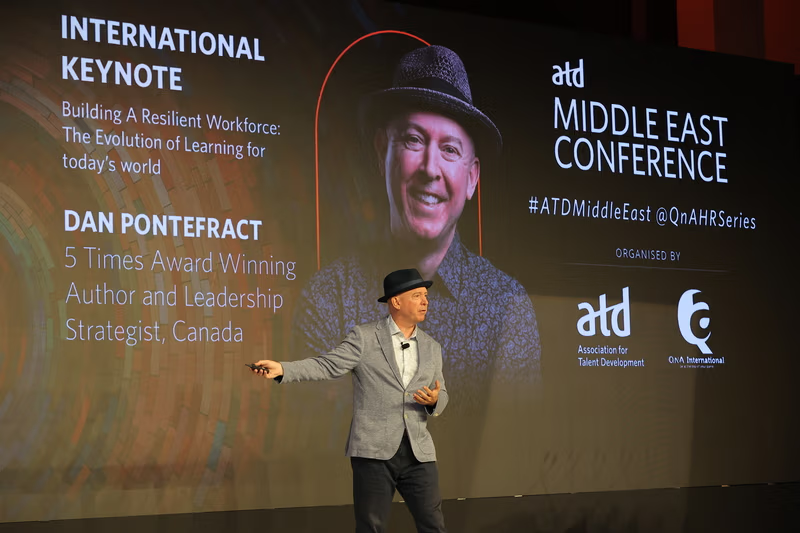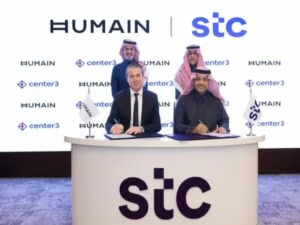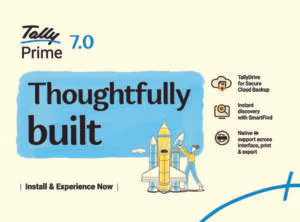Global learning and development experts gather in Abu Dhabi to explore AI integration, design thinking, and human-centered talent strategies.
The 9th edition of the ATD Middle East Conference concluded this week in Abu Dhabi, drawing over 400 senior professionals from the HR and learning & development sectors for two days of intensive discussions and insights into the evolving world of workforce training and talent development.
This year’s theme, “Experience First: The New Era of Talent Development,” placed human-centric learning models, AI adoption, and cross-generational skills strategies at the forefront of the regional learning agenda.
The event opened with remarks from Hamad Mohammed Alsudain, Acting Support Services Executive Director at the Department of Culture and Tourism – Abu Dhabi, who welcomed attendees and emphasized the importance of knowledge exchange in shaping the workforce of tomorrow.
Keynote addresses and sessions highlighted how emerging technologies, particularly artificial intelligence, are transforming workplace learning models.
Dr. Wei Wang, Senior Global Director at the Association for Talent Development (ATD), presented recent research illustrating the measurable impact of AI on learning functions. “AI has boosted productivity (59%), training efficiency (51%), and creativity or innovation (47%),” she said, adding that top use cases included content creation, language translation, and measuring learning outcomes.
Dan Pontefract, a leadership strategist and author, urged delegates to adopt a proactive mindset toward technological change. “It will only replace you if you treat it like an enemy,” he said in his keynote, addressing the relationship between AI and workforce adaptability.
John Atwood, Senior L&D Manager at Google, shared the company’s approach to preparing technical leaders for human-AI collaboration, focusing on ethical use, responsible scaling, and workforce empowerment.
The conference also included case studies and panel discussions from across the Gulf region. Ahmed Hamad Al-Hammad, Acting Head of HR and Transformation at Kuwait Finance House (KFH), spoke about aligning national workforce competencies with transformative HR programs.
Leadership development was another major theme. David Ribott, a leading CEO coach in Abu Dhabi, emphasized the evolving nature of leadership succession: “Succession isn’t just about readiness. It’s about responsibility. About shaping cultures and transitions that don’t just maintain momentum, but evolve it.”
Hilal Al Jadidi, Chief People & Change Officer at Omran Group, outlined how Oman’s tourism strategy is being supported through targeted leadership initiatives.
Other speakers introduced new tools and learning frameworks. Peter Gater, Senior Consultant at TAAEEN, discussed the application of design thinking in cross-generational program development. Hanan Nagi, Founder and CEO of HNI, challenged traditional self-belief narratives in personal development, emphasizing courage, planning, and shared growth: “Even when belief feels uncertain.”
Sue Lam, VP of People Insights, Strategy & Culture at The Coca-Cola Company, shared how AI is actively reshaping performance-based learning within the organization, offering examples of applications in use today.
Sarah Daly, Director of Ed-Tech at LEORON Institute, led a seminar on how Learning Experience Platforms (LXPs) are replacing conventional learning management systems by enabling data-driven, personalized development journeys at scale.
Throughout the event, sessions underscored a broader shift toward experience-based learning, future-ready workforce planning, and skills-focused development strategies aligned with both regional goals and global trends.
As AI technologies become increasingly integrated into workplace learning, the conference emphasized a unified message: the path forward lies not in resisting change, but in training with it.






